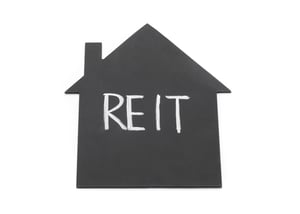There’s very little that can’t be done on the internet today, including buying, selling, and managing real estate.
Here are 17 of our favorite real estate websites, including places to shop for rental property, manage income and expenses, run rent comparables, analyze market trends, and screen tenants.
Key takeaways
- Real estate websites like Roofstock, Zillow, and Realtor.com are some of the best places to find single-family rental (SFR) properties and homes for sale.
- Stessa is our favorite website for free rental property financial management software for investors seeking to automate income and expenses.
- Real estate websites for researching housing market and rent trends include Redfin, Rentometer, the NAR, and Zumper.
There are a lot of real estate websites, and what qualifies as “the best” depends upon what you’re looking for. For our analysis, we put together the 17 websites that we regularly turn to for help finding opportunities faster, analyzing potential deals more thoroughly, and keeping us on track for reaching our real estate investment goals. In our opinion, these are some of the best sites out there for real estate investors.
Best for SFRs: Roofstock
It’s a niche market, but Roofstock operates the #1 marketplace for buying and selling SFR homes, with property listings in more than 70 markets in 28 states. With its focus on the SFR asset class, Roofstock fills this niche perfectly—and that’s not just our opinion. In less than 6 years, buyers and sellers have completed more than $4 billion in transactions on the Roofstock platform.
In addition to SFRs, investors can shop for different categories of investments like short-term vacation rentals, small multifamily properties, new construction built-to-rent properties from Lennar Homes, property portfolios of all sizes, and shares of Roofstock One Tracking Stocks tied to the economic interests of curated, fully managed property portfolios. Whether you’re new to the game or a seasoned investor, Roofstock offers tools, resources, and opportunities for you.
Best for free rental property software: Stessa
Stessa is another Roofstock company – and we are really into their free rental property financial management software. This software—available online or via iOS or Android app—makes it easy to automatically track income and expenses and to maximize revenues with smart money management. We love that investors can monitor properties at both the portfolio and property levels via a comprehensive dashboard to optimize property performance and potential returns.
Stessa offers features and tools that rival even high-priced property management programs. It can be used to:
- Track the performance on an unlimited number of properties
- Collect rent
- Market a vacant unit
- Screen tenants
- Generate dozens of financial reports
- Securely store important real estate documents
- Export tax-ready financials
![stessa-mac-mockup-2800-2500[4]](https://learn.roofstock.com/hs-fs/hubfs/stessa-mac-mockup-2800-2500%5B4%5D.jpg?width=2800&height=2500&name=stessa-mac-mockup-2800-2500%5B4%5D.jpg)
While other investors are poring over spreadsheets and frantically searching shoeboxes for missing receipts this April, we’ll be sitting on our sofa and getting tax-ready at the push of a few buttons on the Stessa app. Think we’re kidding? Check them out for yourself.
Best for home listings and data: Zillow
Sure, their iBuyer program infamously self-destructed last year. But Zillow is still a mammoth player in the real estate industry. It has become a go-to source for buyers and sellers, for sale by owner (FSBO), landlords and property managers, renters, and even real estate agents. The company has about 135 million properties in its database and captures 29% of real estate website traffic (according to iPropertyManagement).
Zillow Research provides in-depth data on home values using their proprietary Zestimate tool, forecasts, inventory, rentals and more. The company also offers robust tools for rent estimates, sales comparables, and rental property bookkeeping. Savvy investors know not to rely upon one source for data, but to gather information, compare notes, and complete their own analysis. Zillow is a great place to start and offers a set of easy-to-use tools and features.
Best for MLS listings: Realtor.com
Investors and home buyers looking for property listed by a real estate agent on the multiple listing service (MLS) will find Realtor.com to be the perfect resource. The database is linked to nearly 600 regional multiple listing services (MLS) and contains nearly all of the properties listed on the MLS.
The website also contains data at the market and neighborhood level, including median listing and sales prices, days on market, most expensive and affordable neighborhoods, and whether a market favors buyers or sellers. We love the analysis and reports that Realtor.com publishes— it’s a great site to visit to learn about real estate trends.
Best for FSBO: FSBO.com
In today’s competitive market, successful investors can leave no stone unturned. FSBO.com is known as the premier FSBO website and has been connecting prospective buyers and sellers since 1997. Searching for a property is easy, and the website typically has over 1,000 homes at any given time.
Best for short sales and foreclosures: Foreclosure.com
There are hundreds of thousands of short sales, foreclosures, bankruptcy properties, and tax lien listings on Foreclosure.com. Although buying a foreclosure home can be complex, the company tries to make the process easier by including documents, foreclosure laws, and foreclosure articles in its learning center. For investors with time and a willingness to assume a bit of risk, investment opportunities can be found here.
Best for property auctions: Auction.com
Auction.com is known as the leading online marketplace for bank-owned properties, vacant properties, short sales, and foreclosure properties that are being auctioned off. There are over 16,000 properties going to auction, and investors can bid on a property online or in person, depending on the auction terms.
Best for listing a vacant rental property: Apartments.com
Finding a reliable tenant fast is important in SFR investing, and landlords with vacant property can reach millions of prospective renters by listing on Apartments.com. The website syndicates listings to all of the major online listing services and provides tools for screening applicants, signing leases, and setting up monthly rent payments. Despite the company’s name, Apartments.com is perfect for SFRs, multi-unit properties, condos, and townhomes.
Best for finding market rents and trends: Zumper
Investors need data to make good decisions, and Zumper is a great source for finding median market rents at the city and metro level, with data that is updated daily. Rent prices can be searched for based on the number of bedrooms, and investors can view multiyear rent trends.
The site also provides rent statistics important to real estate investors, such as the percentage of renter-occupied households in a market and median rent by neighborhood. Zumper is another good site for posting listings and screening tenants.
Best for running rent comps: Rentometer
Investors can compare rent with similar local properties with Rentometer by entering a property address, neighborhood name, ZIP code, or city. The company offers a free trial that provides basic rent comparables, along with paid subscription options for detailed rent data, reports, and analysis.
Best for market-level data: Census Reporter
While Census Reporter isn’t technically a real estate website, it is a great tool for investors to use to analyze demographic and market trends at the city, metro, county, and state levels.
The website compiles data from the most recent U.S. Census and includes information to help you determine if an area has a high demand for rental property. Data on Census Reporter includes population by age range, per capita and median household income, and percentage of renter-occupied households.
Two other good websites for market-level data are Data USA and the U.S. Census Bureau.
Best for neighborhood-level sales trends: Redfin
In addition to being a real estate listing website, Redfin is an invaluable source for analyzing housing sale trends at the neighborhood level. Investors can find important statistics such as median sale prices, year-over-year price trends, days on market, sale-to-list price ratios, and information on recent sales and school ratings.
Best for research reports and statistics: National Association of Realtors
With nearly 1.6 million members, the National Association of REALTORS (NAR) is the nation’s largest trade organization and a go-to source for housing market statistics, research reports, and real estate data at the state and metro levels. Housing statistics include data on existing home sales, a housing shortage tracker, and an affordability and distribution curve and score to help you identify attractive real estate markets for investing.
Best for Home Price Index trends: Freddie Mac
The Freddie Mac House Price Index (HPI) is another good tool for forecasting the potential demand for rental property and housing appreciation at the metropolitan statistical area (MSA), state, and national levels. The HPI measures the typical price inflation for houses in the U.S., and values are calculated monthly and released at the end of the following month.
Best for legal resources: Nolo
While the website isn’t a replacement for a good real estate attorney, Nolo.com is a good, free legal resource for real estate investors, landlords, property managers, and tenants. Topics covered on the website include fair housing, landlord-tenant laws, renter’s and tenant’s rights, and eviction laws by state.
Best for online tenant screening: RentPrep
RentPrep (another Roofstock company) screening has been shown to reduce tenant defaults by up to 25%* versus other screening solutions, according to a recent study done in partnership with a large property management company. Before RentPrep runs a background check, an FCRA-certified screener will verify your applicant’s identity by comparing name, SSN, and date of birth with information in our databases.
Landlords can choose from 3 different tenant screening packages and can elect to pass the cost of a rental background check to an applicant.
*Based on an internal study retroactively comparing RentPrep screening results for a sample of tenants in default.
Best for online rent collection: PayYourRent
Accepting rent payments online can lead to improved cash flow and higher occupancy offering tenants a service that they’re looking for. PayYourRent makes it easy for property managers and landlords to collect rent payments and security deposits online, with funds transferred to business accounts the same day. Tenants can pay rent by mobile app, tablet, or computer using a debit card, credit card, or ACH (electronic check).
Other online rent payment systems to consider include Stessa, Avail, Cozy, eRentPayment, and TenantCloud.









